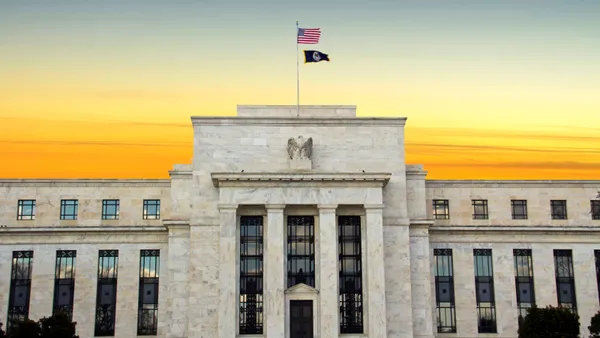Dive Brief:
- The Consumer Financial Protection Bureau (CFPB) proposed a rule Monday requiring nonbank financial firms to register with the agency if they are subject to any local, state or federal court order or regulatory enforcement orders.
- The proposed registry of the alleged "lawbreakers" will track and publish the data online to make it available to the public.
- The proposed rule will be open to public comment 60 days after it is published in the Federal Register and will be released "no earlier than January 2024," according to a press release.
Dive Insight:
The CFPB plans to create a registry of nonbank offenders to help identify risks to U.S. consumers and ensure supervised companies carry on their duties toward the American people.
"Protecting American households is a shared effort across local, state and federal authorities," CFPB Director Rohit Chopra said in Monday’s press release. "The proposed registry will help the CFPB, the law enforcement community and the public limit the harms from repeat offenders."
Larger nonbank entities subject to the CFPB supervision must appoint a senior executive officer who would attest annually in a written statement that the registered company follows all federal laws, the proposed rule states.
The bureau monitors certain nonbanks and regularly maintains contact with state bank regulators to operate a consumer complaint database that advises on banks or financial institutions that are noncompliant with consumer protection laws, according to American Banker.
But the proposed registry will help supervise the problems at the state and local levels.
"Having access to a centralized list of all relevant orders entered against nonbanks would significantly increase the Bureau's ability to monitor the market so that the Bureau can identify, better understand, and ultimately, prevent further consumer harm, particularly from repeat offenders," the CFPB said in its press release.
Companies that are repeat offenders not only deprive the customers of security in the marketplace but also might charge them to cover the cost of the fees or fines that the company is subject to. So, the consumers may eventually be "subsidizing corporate malfeasance," the bureau argued.
Chopra has advocated for harsher penalties for banks that repeatedly violate consumer protection laws. He called for regulators to mitigate new punishments, such as stripping operating licenses and special government privileges from repeat offenders. The CFPB has planned to launch a new unit in the agency's supervision and enforcement division to catch repeat offenders, Chopra said.
Repeated or systematic violations could indicate pervasive problems within the market, including lack of control, insufficient compliance management systems and processes, or a reluctance by some to comply with the federal consumer laws, the CFPB said.
Registration would be required for final court judgments, including consent and stipulated orders brought under federal consumer protection laws or state laws concerning unfair, deceptive, or abusive acts or practices, the bureau said. Consumer finance-related orders issued under the Federal Trade Commission Act or similar state laws must also be reported.
Though the CFPB is sticking with nonbanks to apply for registration, it might expand its database in the future.
"While the CFPB might later consider collecting or publishing the information described in the proposal from insured banks and credit unions, there is currently greater need to collect this information from nonbanks under its jurisdiction," the CFPB said Monday.














